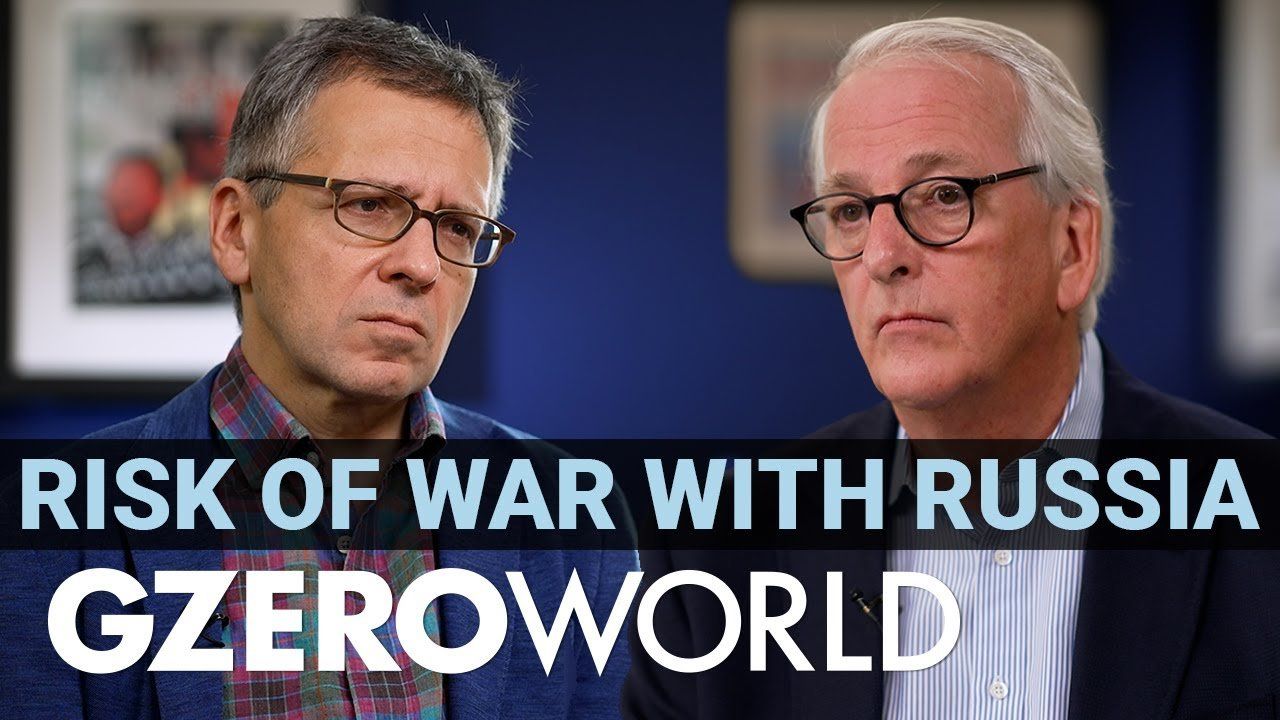GZERO World with Ian Bremmer
Russia vs. NATO: Heightened risk of war

Russia vs NATO: Heightened risk of war | GZERO World with Ian Bremmer

Russia's war in Ukraine has significantly increased the likelihood of direct confrontation with NATO. Moscow is rattling the nuclear saber, NATO just added 830 miles of territory on the Russian border, and tensions are higher than ever. Russia now sees NATO as its enemy and vice versa. But does that mean war is inevitable?
On GZERO World, former US Ambassador to NATO Ivo Daalder warns that Russian military aggression poses a real and present danger, making the current situation arguably worse than its been since the end of the Cold War. The possibility of all-out military confrontation between the two nuclear-armed superpowers is the highest it has been since the Cuban Missile Crisis in 1962, Daalder says in a conversation with Ian Bremmer.
Meanwhile, Russia still has some friends left. And non-aligned countries like India, Brazil, and South Africa remain on the fence because they have strong ties with both Washington and Moscow.
Daalder also highlights the potential impact of Turkey's upcoming election on NATO. President Erdoğan has been blocking Sweden's membership in the alliance, but the opposition candidate is campaigning on a platform of leaning closer to the West. If Erdogan loses reelection, it could mean Turkey becomes a stronger ally and partner at a crucial time for NATO.
15: The number of migrants who died after their boat accidentally collided with a Greek Coast Guard vessel in the Aegean Sea on Tuesday. Two dozen people were rescued.
Walmart is investing $350 billion in US manufacturing. Over two-thirds of the products Walmart buys are made, grown, or assembled in America, like healthy dried fruit from The Ugly Co. The sustainable fruit is sourced directly from fourth-generation farmers in Farmersville, California, and delivered to your neighborhood Walmart shelves. Discover how Walmart's investment is supporting communities and fueling jobs across the nation.
Democratic Alliance leader John Steenhuisen announced Wednesday that he will not run for a third term as leader of the liberal, pro-business party, after months of internal pressure over a host of controversies – including allegations, since cleared, that he used the party credit card for Uber Eats.